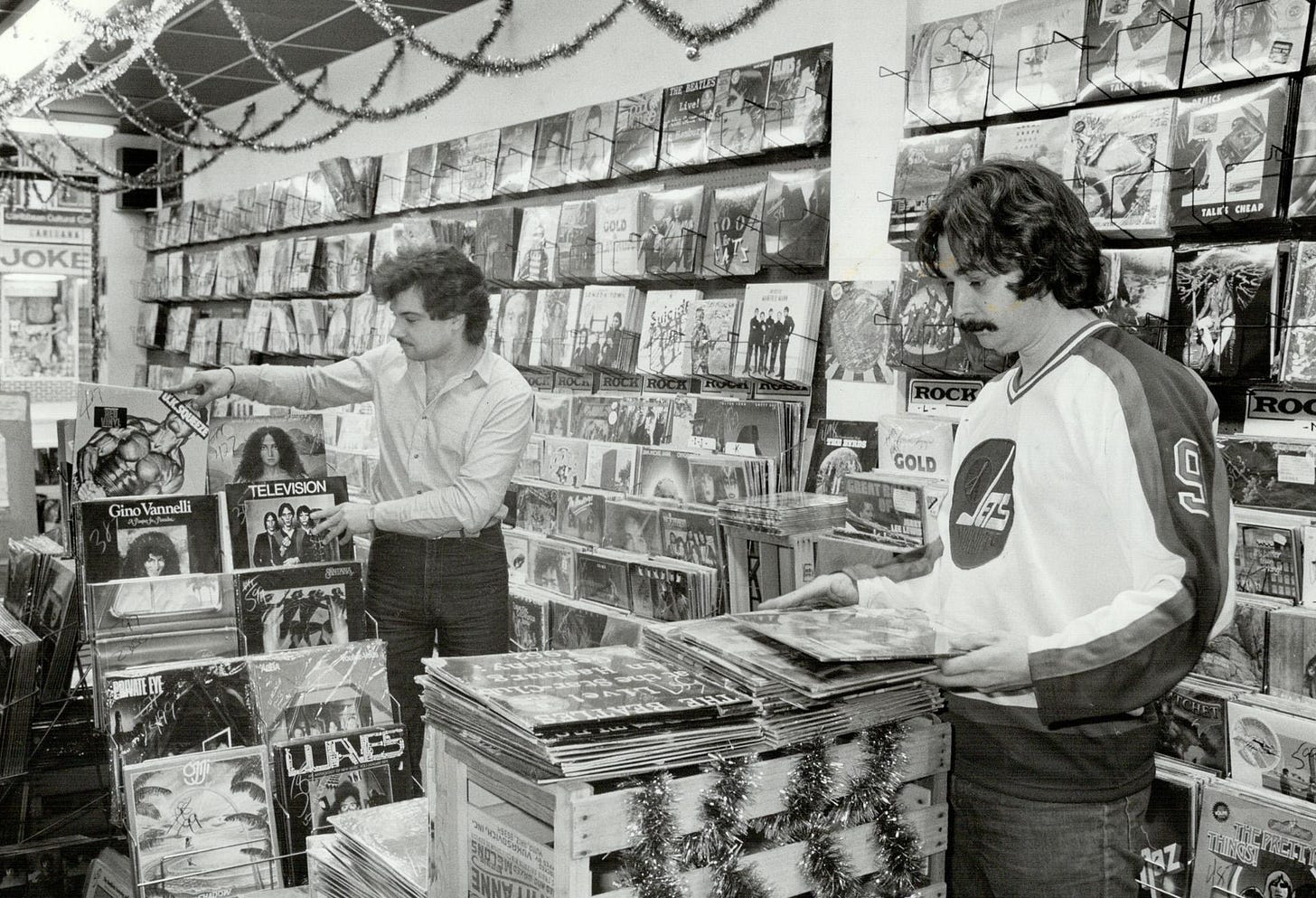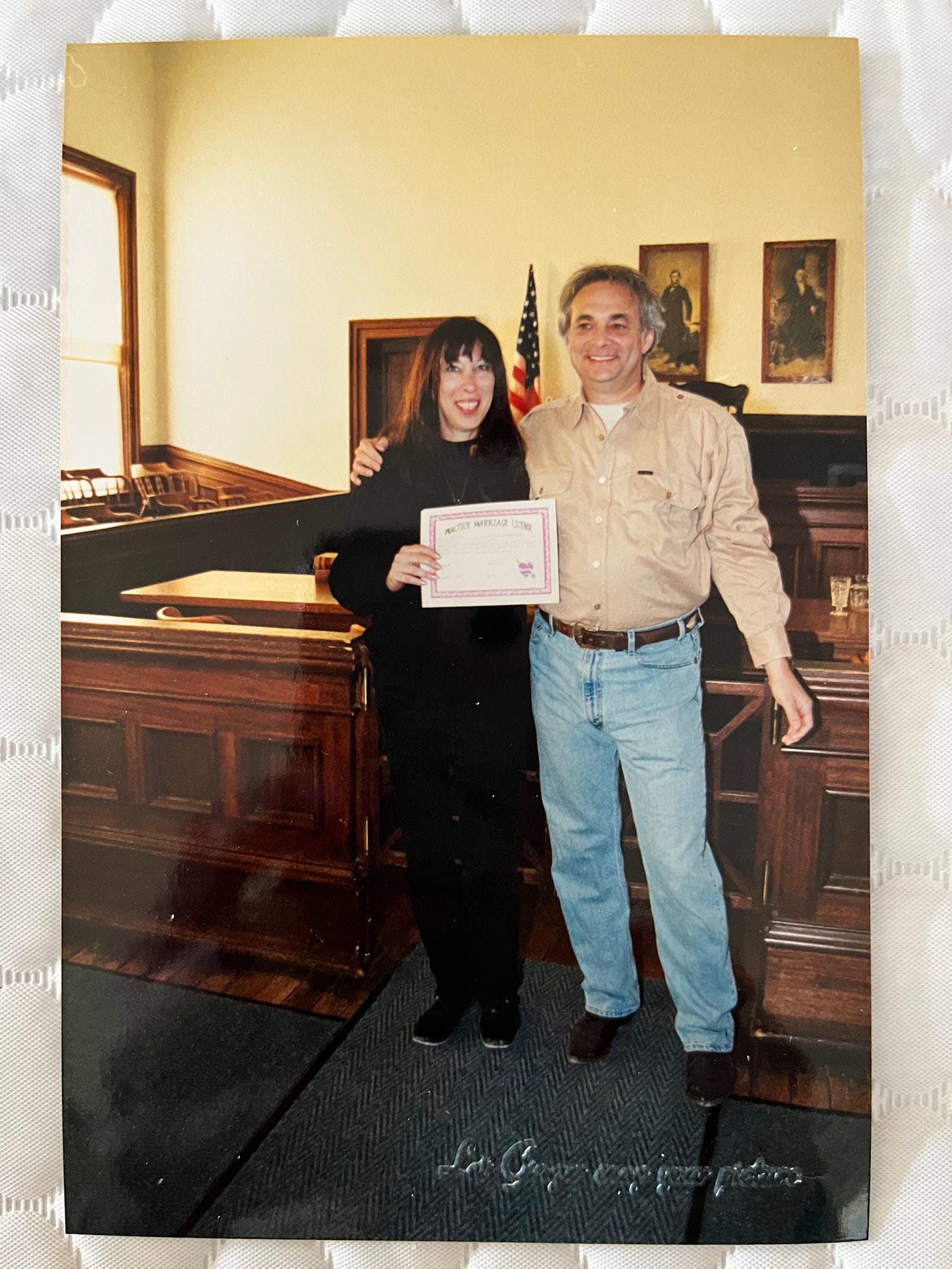Friend #41 & 42 - Bernie & Ricki
The '60s hipsters
“We’re products of the 1950s who grew up in the 1960s era which was peace, love, music, and respect,” Bernie says.
Ricki, Bernie, and I are sitting on the patio of a Richmond Hill café. I’m helping them plan an upcoming trip to Italy. The two met years ago when Ricki visited Bernie’s record store.
“There’s the truth and then there’s his version of the story,” says Ricki.
Over a decades-long career in the music industry, Bernie owned 17 stores across the city. Ricki was working at a law firm beside one of them and came in with her sister two days before Christmas looking to exchange a Whitney Houston CD.
“They were trying to pawn it off as full price when it was only worth about a dollar,” Bernie says.
“It was a Christmas gift that my sister received from one of her students,” Ricki adds. “Bernie and I chatted and when we left the store my sister tells me, ‘He’s flirting with you.’”
Ricki had been single for 15 years at that point and went back to the store on Christmas Eve day to ask Bernie out. “I knew that he was Jewish and so he probably wouldn’t have plans that evening,” says Ricki.
The rest is history. The two were together for eight years before an impromptu wedding in Arizona.
“We were at the top of an old courthouse in Tombstone and our friend Larry asks, ‘Has anyone ever gotten married here?’” says Ricki.
Bernie then asked Ricki to marry him and the two wed later that day. Larry drove them to Mexico for dinner where they bought Twinkies to celebrate.
“We had Twinkies at our actual wedding in Toronto as well,” says Ricki.
The two add a comedic twist to everything that they do. For years they ran a few locations of candy stores called The Town Dump. “We had candy, posters, lunch boxes,” says Bernie.
It was candy with a nostalgic hint. The September 11, 2001 attacks on the twin towers in New York ultimately led to a decline in sales.
“We had opened a store right before the school year but after 9/11 people were glued to their TVs. It was horrifying. People weren’t going out. Nobody listened to music for months,” says Ricki.
This post-9/11 world came with the loss of innocence.
As we sip our coffee, a vintage beetle stops at the red light and the driver has trouble starting the engine. “If this was the 1960s, the people behind him would go help him push the car instead of honk,” says Bernie.
“We used to trust everybody. Hundreds of thousands of people attended music festivals,” says Ricki.
I begin to think about the way that we consume art. While, for instance, in the second half of the 20th century people would go to the cinema to watch movies or the record store to buy new music, we now access everything at the touch of our fingertips. This is undeniably convenient but it also takes away from the experience. The joy of walking into a record store and seeing the salesman. The excitement of opening a record and hearing it play for the first time in our living rooms.
I met Bernie and Ricki through my father who is a motorcycle dealer. Bernie currently works weekends and reminds me by saying, “I love working for your family.”
The couple enjoys motorcycle trips and drives long distances yearly. Bernie’s sister-in-law founded the B.A.D ride. The acronym stands for bikers against despair and raises funds for the Toronto Distress Centre. The motorcycle community acts as a way of bringing people together for a great cause.
“Do you think that people today are more anxious?” I ask.
“Yes. People used to live for today. We were less afraid of failure,” says Bernie.
“A friend has no race, no class, and belongs to no minority. My friendships were formed out of affection, mutual respect, and having a feeling of something strong in common. These are eternal values that cannot be racially classified. This is the way I look at race.”
―Frank Sinatra
Internet Browsing




